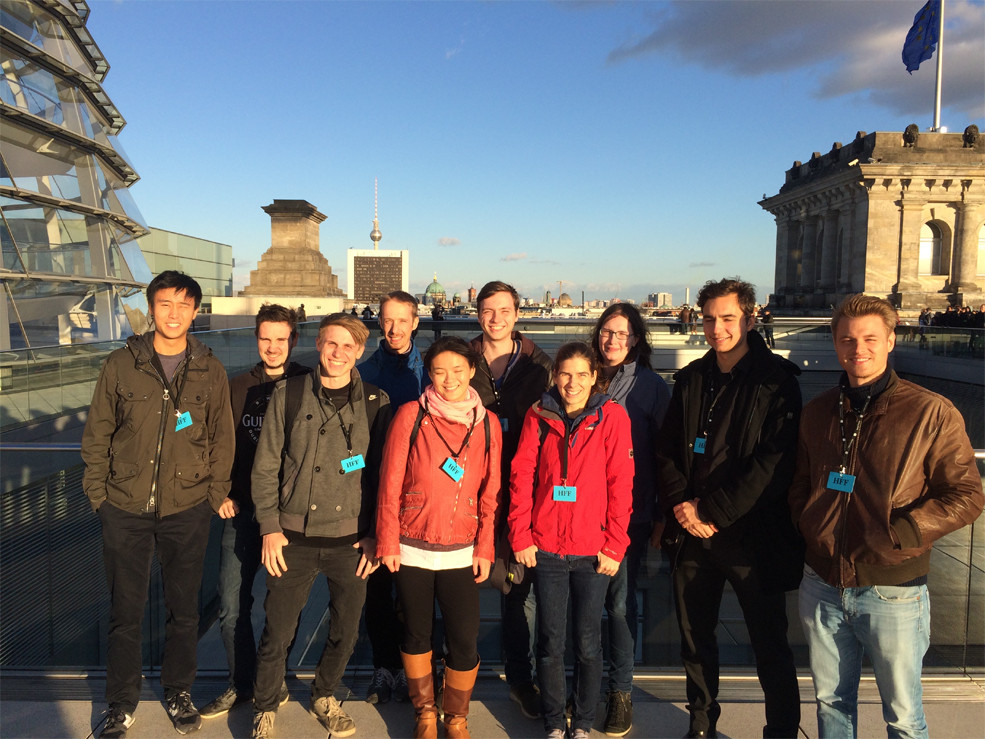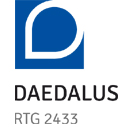DAEDALUS online retreat, May 9-10, 2022
All PhD candidates presented in a short talk the recent progress of their research projects.
Online workshop on Good Scientific Practice, April 25, 26, 28, 2022
Trainer: Dr. Hans-Peter Eckle
Online Unconscious/Implicit Bias Workshop, March 11, 2022
Trainers: Constanze Schwärzer-Dutta & Robel Afeworki Abay
Workshop: Team work & leadership in & outside academia, January 18, 2022
Trainer: Dr. Simon Golin
DAEDALUS online Winter School talk by Prof. Dr. Markus Bär, January 20, 2022
Talk by Prof. Dr. Markus Bär (Physikalisch-Technische Bundesanstalt, Berlin) on ‚Modelling dynamics and control in cardiac systems and living fluids’.
DAEDALUS online Winter School talk by Prof. Dr. Lars Ruthotto, December 09, 2021
Talk by Prof. Dr. Lars Ruthotto (Emory University, Atlanta, USA) on ‘An Introduction to Generative Modeling’
DAEDALUS online Winter School talk by Prof. Dr. George Karniadakis, December 06, 2021
Talk by Prof. Dr. George Karniadakis (Brown University, Providence, USA) on ‘Physics-Informed Machine Learning for Diverse Applications in Science and Engineering’.
DAEDALUS online Winter School talk by Prof. Dr. Alexandre Tkatchenko, November 30, 2021
Talk by Prof. Dr. Alexandre Tkatchenko (University of Luxembourg) on ‘Machine Learning Force Fields.’
BIMoS Day, December 13, 2021
Talk by Prof. Dr.-Ing. Philipp Geyer (Technische Universität Berlin) on ‘Using data-driven models generated by component-based machine learning to replace simulation in energy efficient building design’.
Introductory Intensive Course Period, November 03-25, 2021
On November 03, 2021 the introductory intensive course period begins. The courses offered provide basic competences in the main research areas of our RTG. Students are familiarised with the mathematical foundations and application foci that are crucial for the projects in order to bridge interdisciplinary language gaps and generally strengthen the cohesion of the cohort. Participation in these courses is mandatory for the cohort.
Interdisciplinary welcome week, October 18-20, 2021
From October 18-20, 2021 our second interdisciplinary welcome week took place at TU Berlin. The three day program included informational talks on the scientific and organizational side of our RTG, presentations of the PIs involved in our RTG, a soft skill course on ‘academic presentation skills’ by Lesley-Anne Weiling, scientific speed meeting and a poster session where the PhD students presented their master thesis (2nd cohort) and their PhD projects (1st cohort) to the group.
The program can be downloaded here. Interdisciplinary Welcome Week_2021_Web
BIMoS Day “Designing molecular models by machine learning and experimental data”, July 12, 2021
By Prof. Dr. Cecilia Clementi (FU Berlin).
BIMoS Day “Motion and Deformation in Image Processing”, June 14, 2021
By Prof. Dr. Gabriele Steidl (TU Berlin).
BIMoS Day “Finite element methods respecting the discrete maximum principle for convection-diffusion equations”, June 07, 2021
By Prof. Dr. Volker John (WIAS & FU Berlin).
Online workshop on “Career strategies accompanying the doctorate”, May 19, 2021
By trainer Dr. Simon Golin.
DAEDALUS Retreat 2021, April 22-23, 2021
This event took place online.
BIMoS Day “Feedback control of large-scale dynamical systems”, February 22, 2021
By Prof. Dr. Tobias Breiten (TU Berlin).
BIMoS Day “Modern Methods in Combustion Science: high-fidelity numerical simulations combined with first principles and data-driven models”, February 15, 2021
By Prof. Dr. Abdulla Ghani (TU Berlin).
BIMoS Day “Variational Models for Microstructures in Smart Materials”, February 08, 2021
By Prof. Dr. Barbara Zwicknagl (HU Berlin).
‘Academic and Scientific Writing’ online course, January 25-27, 2021
The workshop was held by Mark Edwards.
DAEDALUS online Winter School, Prof. Kevin Carlberg, December 16, 2020
Prof. Kevin Carlberg from the University of Washington, Seattle, USA, will give a 1 hour talk on ‘Nonlinear model reduction: using machine learning to enable rapid simulation of extreme-scale physics models’ as part of our this years online Winter School.
DAEDALUS online Winter School, Prof. Gianluigi Rozza, December 09, 2020
Prof. Gianluigi Rozza from SISSA, Trieste, Italy will give a 1 hour webinar on ‘State of the art and perspective of reduced order methods in computational fluid dynamics and applications’ as part of our this years online Winter School.
DAEDALUS online Retreat, December 01-02, 2020
All PhD candidates presented in a short talk the recent progress of their research projects.
DAEDALUS Autumn School, October 05-09, 2020
This event has been cancelled due to the corona virus.
Time and self Management for the home office, June 11-12, 2020
Trainer: Mark Edwards
Kolloqium on ‘Solution Concepts for Optimal Feedback Control of Nonlinear Partial Differential Equations’, April 22, 2020
Due to the Coronavirus crises the event is cancelled!
DAEDALUS Retreat 2020, April 20-21, 2020
Due to the Coronavirus crises the retreat is cancelled!
BIMoS Day “Accurate and Scalable Processing of Big Data in Earth Observation”, February 10, 2020
by Prof. Dr. Begüm Demir (TU Berlin)
BIMoS Day “Modelling and simulation of non-equilibrium phenomena in colloidal systems”, January 20, 2020
by Prof. Dr. Sabine Klapp (TU Berlin)
Towards Brain Imaging in the Everyday World – recent progress and my personal journey, December 16, 2019
Dr. Alexander von Lühmann (Boston University)
BIMoS Day “Measuring and modelling the porous structure soils”, December 10, 2019
by Prof. Dr. Hans-Jörg Vogel (Helmholtz Centre for Environmental Research – UFZ)
DAEDALUS Winter School on Machine Learning meets Numerical Analysis of PDEs, December 02-06, 2019
Machine Learning meets Numerical Analysis of PDEs
Our first DAEDALUS Winter School took place from December 02-06, 2019 nearby Berlin at the Seehotel Zeuthen. Nine invited speakers gave compelling lectures on the subject of ‘Machine Learning meets Numerical Analysis of PDEs’ (see list below). Further to the DAEDALUS students, participants from Deutsches Elektronen-Synchrotron DESY (Zeuthen), SISSA – Scuola Internazionale Superiore di Studi Avanzati (Trieste, Italy) and ETH Zurich attended the school. Between classes and during the poster session, students, lecturers and DEADALUS staff had the possibility to discuss the topics and/or aspects of their work further.
Some impressions of the winter school
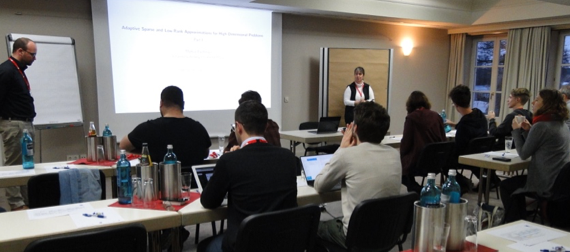
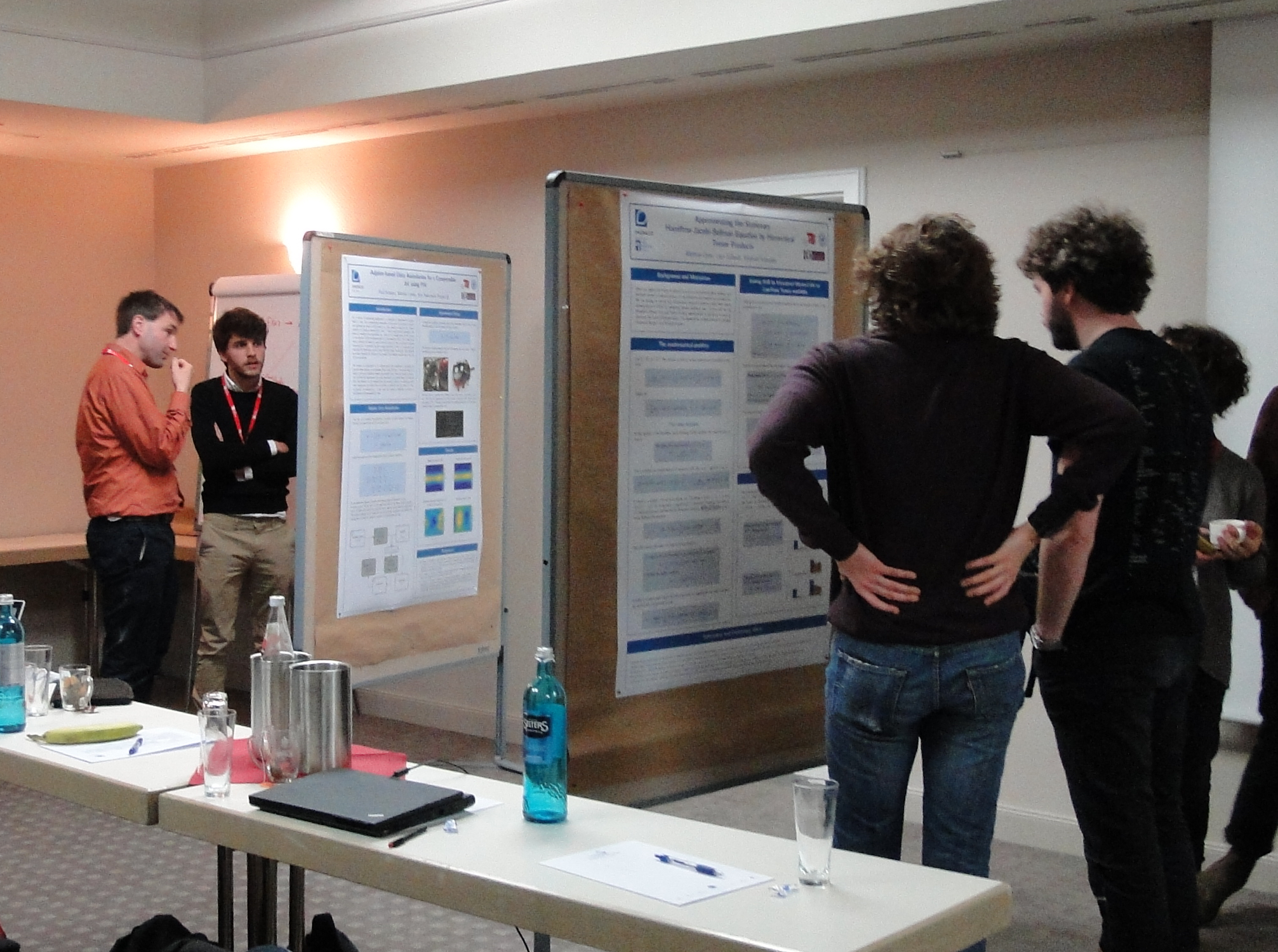
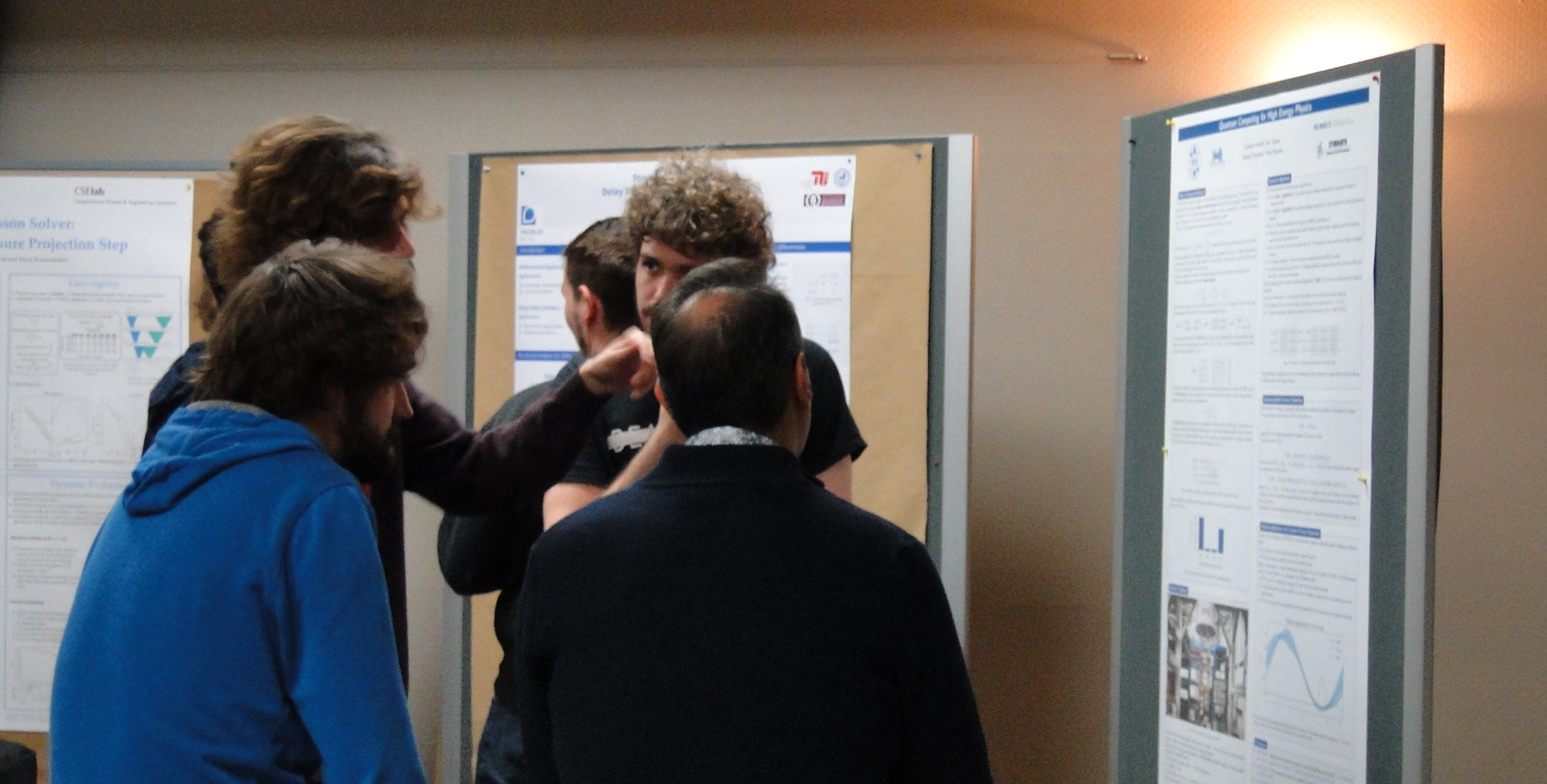
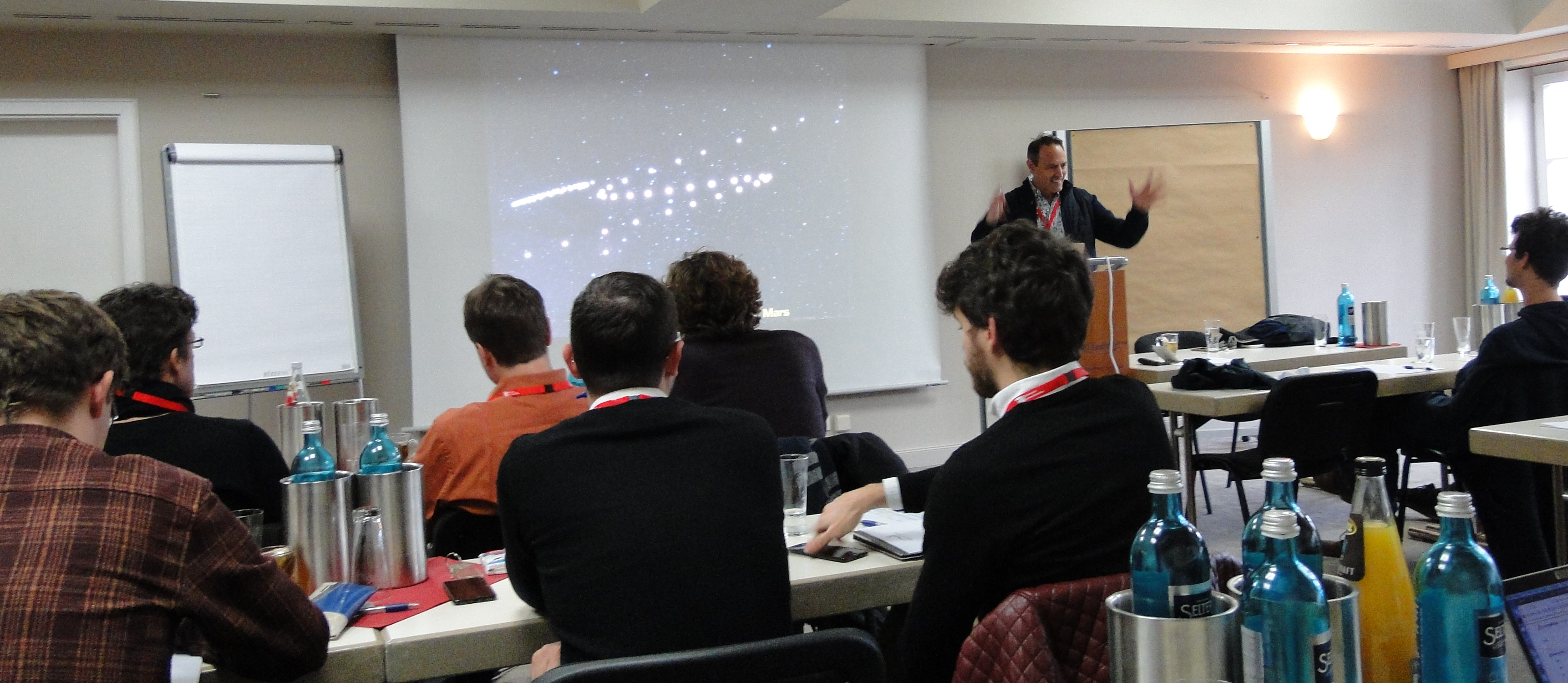
Invited Speakers:
- Prof. Dr. Markus Bachmayr (Johannes Gutenberg-Universität Mainz): ‘Adaptive Sparse and Low-Rank Approximations for High-Dimensional Problems’
- Prof. Dr. Arnulf Jentzen (University of Münster)
- Prof. Dr. Gitta Kutyniok (Technische Universität Berlin): ‘Beating the Curse of Dimensionality: A Theoretical Analysis of Deep Neural Networks and Parametric PDEs’
- Prof. Dr. Nathan Kutz (University of Washington): ‘Data-driven discovery of governing equations and laws in engineering, physics and biology’
- Prof. Dr. Ivan Oseledets (Skoltech Faculty Moscow): ‘Constructive methods for multivariate function approximations using tensors and deep learning’
- Prof. Dr. Philipp Petersen (University of Vienna): ‘A primer on approximation theory of neural networks’
- Leon Sallandt (Technische Universität Berlin): ‘A simple implementation of the policy iteration for solving the HJB equation’
- Prof. Dr. Tobias Schaeffter (Physikalisch-Technische Bundesanstalt Berlin): ‘Quantitative Magnetic Resonance Imaging’
- Prof. Dr. Reinhold Schneider (Technische Universität Berlin): ‘Hamilton Jacobi Bellman Equation and Feedback Control of Partial Differential Equations’
“Turbulence in Fusion Plasmas“, November 21, 2019
by Dr. Özgür Gürçan (CEDEX, France)
“BIMoS Distinguished Lecture “Can everything be computed? Shanning and Turing meet Modeling“, November 12, 2019
by Prof. Dr. Holger Boche (TU München)
“A Tutorial on Riemannian geometry for Brain-Computer Interface classification”, November 11, 2019
by Mr. Marco Congedo (CNRS, University Grenoble Alpes)
Tutorial on “Instability Methods in Hydrodynamics”, October 23, 2019
by Professor Matthew Juniper (University of Cambridge)
DAEDALUS Research Retreat, May 02-03, 2019
Our first research retreat took place from May 02-03, 2019 in Berlin at DAS SCHMÖCKWITZ. The PhD students gave research presentations on their progress during the first few months of their PhDs. Afterwards, the supervisory committees had the chance to give feedback and discuss the projects. Further, each student presented a high impact paper to the group. A program of our retreat can be downloaded here.
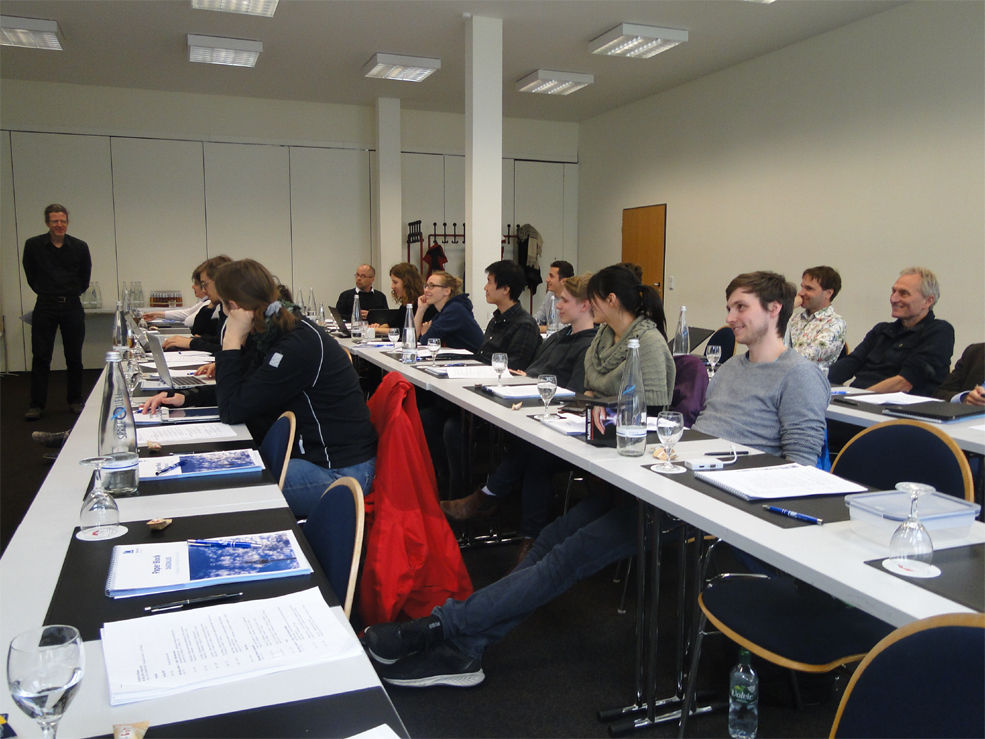
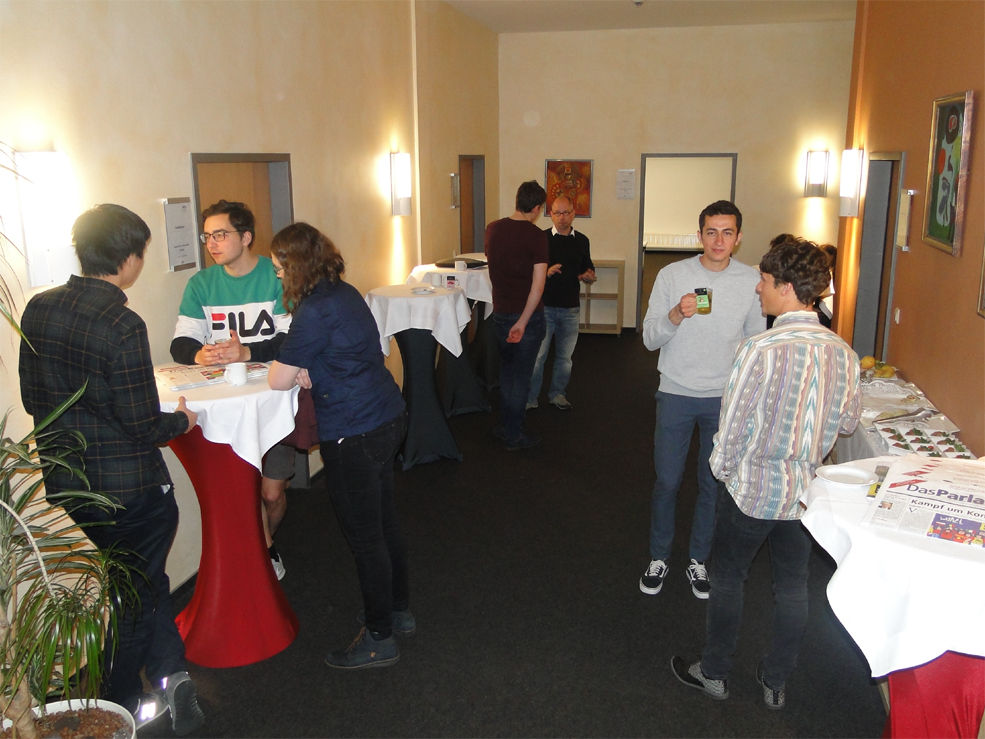
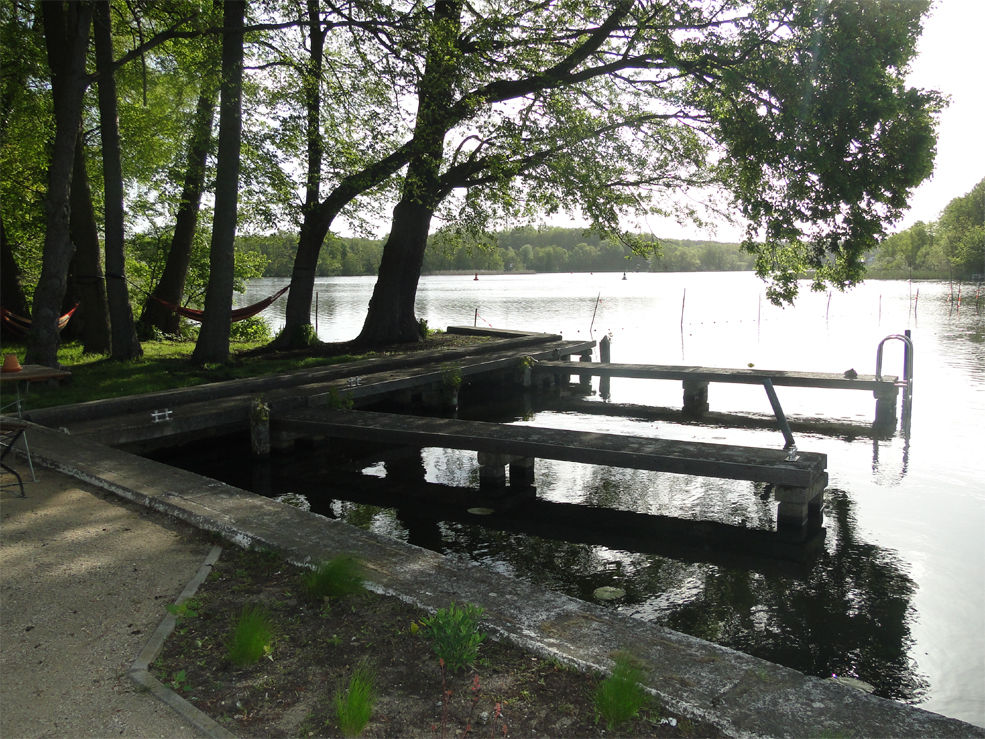
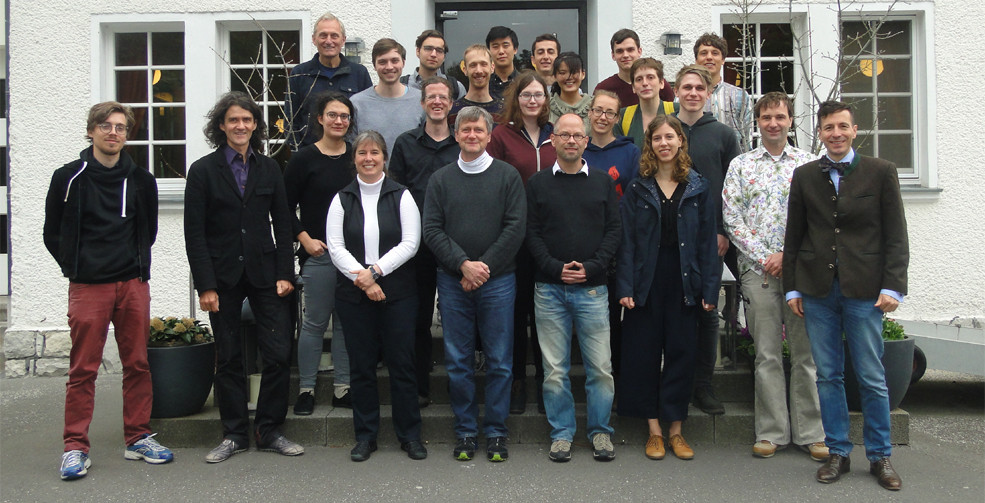
Good Scientific Practice Workshop, March 01, 2019
Trainer: Dr. Olaf Hars
Unconscious/Implicit Bias Workshop, March 01, 2019
Trainer: Constanze-Schwärzer Dutta and Gülden Ediger
Introductory Intensive Course Period, October 29 – December 07, 2018
On October 29, 2018 an Introductory Intensive Course Period started for six weeks. The offered courses provided basic competencies in the main research areas of our RTG. The key goals of this intensive teaching period were to familiarize the students with the mathematical foundation and application foci which are crucial for the projects, to continue bridging interdisciplinary language gaps and in general to strengthen the cohesiveness of the cohort. Participating in these courses is mandatory for the cohort. The six courses were devoted to the following topics:
• Data acquisition and analysis/machine learning
Basic principles of clustering, deep neural networks, data management, linear regression, learning theory, statistical estimation, and support vector machines
• Optimization and optimal control
Basic principles of adjoint equations, first and second order optimality conditions, maximum principle, and nonlinear optimization
• Sparsity and low-rank approximation
Basic principles of compressed sensing, manifold learning, matrix completion, and tensor approximation
• Uncertainty quantification
Basic principles of frequentist and Bayesian approaches, sources of uncertainties such as parameter uncertainty, and uncertainty propagation
• (Partial) differential equation based-modeling and solvers
Basic principles of data assimilation, Galerkin approaches, model reduction, and reduced basis method
• Multiscale problems
Basic principles of adaptive approaches, multiscale modeling, multigrid, and wavelet multiresolution analysis
The courses were taught by experts such as PIs, additionally involved scientists, post-docs, or visiting researchers.
Interdisciplinary Welcome week, October 22-24, 2018
The qualification program started with the Interdisciplinary Welcome Week taking place from October 22-24, 2018. The purpose of these days was to familiarize the PhD students, with very diverse backgrounds from computer science, engineering, mathematics, and physics, with interdisciplinary interactions and to also strengthen the bond within the cohort across discipline boundaries. Key components were information about the scientific and organizational side of our RTG, a soft skill course on “Presentation Skills for Junior Scientists”, short presentations by each PhD student about her/his master thesis, scientific speed-dating, and a sightseeing trip to the German Bundestag in Berlin.
The program can be downloaded here.
